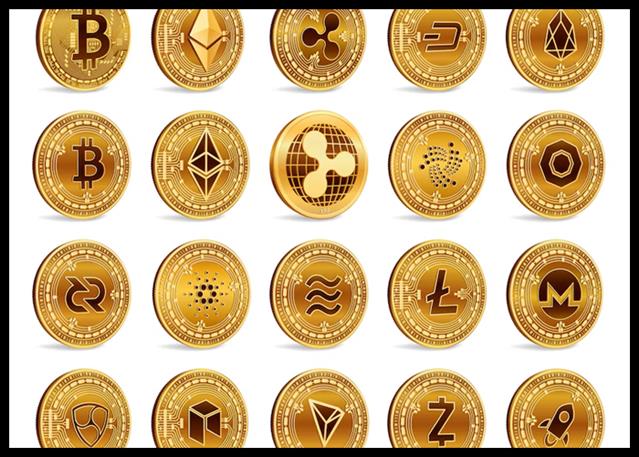
Top 4 Ways the Blockchain Can Fix Economic Problems
At its core and during its foundation, the goal of blockchain technology was to form a solid foundation for cryptocurrencies like Bitcoin, Dogecoin, and Ether to operate flawlessly and fulfil their purpose.
But as time goes on, it’s impossible to ignore the numerous ways that blockchain can solve the economic challenges facing the first and third world.
Blockchain technology is a decentralised ledger that manages and allocates data in a secure, mostly nameless way, and it is mainly utilised to maintain an incorruptible record of financial transactions.
This means that it could equally fill a vital role as a revolutionary payment system in the finance sector. In the third world, where vast swathes of the population remain unbanked, cryptocurrencies could replace traditional fiat currencies and give local people the agency to make instant, secure transitions as long as they have a stable internet connection.
It all sounds great, right? But let’s look at the reality. Does blockchain technology really have the potential to fix the numerous economic issues facing the world today, and, most importantly, what obstacles stand in its way of achieving its mission?
Today, you’ll find out the answer as we delve into the main economic issues that blockchain has the potential to fix as well as the main barriers that need to be dealt with beforehand.
Now, let’s begin!
Major Economic Issues That Can Potentially Be Fixed Through Blockchain Technology

From revolutionizing how we buy, sell, and rent property to advancing the financial ability of third-world countries, let’s look at what blockchain can do for the global economy.
The Betterment of Third-World Countries With Poor Financial Infrastructure
It’s no secret that the world has undergone a technological and financial revolution over the past two decades. Well, first-world countries, that is. In the underdeveloped nations of the global south, many governments find themselves restricted due to notoriously poor financial infrastructure.
Take Africa, for example. In one of the biggest continents on earth, under a quarter of the entire population have access to the Internet.
Due to the major unavailability of broadband internet across the continent, many people are held back from accessing the latest digital developments and thus face a major obstacle towards personal economic growth, education and the betterment of society.
This is where blockchain could form a solution through a procedure known as leapfrogging. While many underdeveloped countries lack stable banking and digital finance technology, they could bypass the conventional requirements to develop their infrastructure by opting for blockchain technologies and crypto instead. This would mean the enormous investment in banking infrastructure would not be needed, yet locals can still reap the benefits of decentralised finance.
Cross-Border Trading
The world is an increasingly globalised place where global economies, cultures, and people are increasingly brought together. The role of cross-border trading of various goods and services plays a huge part in this by forming an exchange of tech, investment, information, and people. However, the world of cross-border trading remains fraught with challenges and red tape.
Again, to use Africa as an example, it’s a continent made up of over 50 different countries. With these nations come independent currencies, laws, bureaucracy, and exchange rates. Navigating it legally would be a nightmare, so the black market and informal trading world are rife. Both of which cause a rise in corruption, harassment, and other damaging economic impacts.
Regarding cross-border payments in Africa, fees are not only extortionate, but the transfer times are incredibly slow. But how can blockchain help?
Thanks to its lightning-fast transfer times and often low fees, blockchain-based cryptocurrencies can speed up payments and cut costs, which will help more local people in underdeveloped countries to be included in the financial world and achieve their economic goals.
Property and Real Estate
Next up is the world of properties and other real estates. In underdeveloped countries, the efficient management of properties can be hellish. For example, in the third world, sales may be confirmed with nothing more than a handshake, data is rarely backed up securely, and vital documents can be lost or even stolen. Two key areas that are riddled with flaws are accountability and transparency.
When it comes to figuring out who owns what regarding property, the blockchain really comes into its own. In addition, it removes the need for intermediaries, cuts down fees, and helps verify various forms of crucial information needed for a safe, secure and reliable property transaction.
A solid example of this is through the use of a non-fungible token (NFT) hosted on the blockchain. When used in the property world, an NFT can store the entire history of a piece of real estate alongside the range of data local authorities, governments and municipalities need to record.
Revolutionising Proof of Identity
Blockchain can additionally fill another groundbreaking role in the security and management of personal information and forms of ID. Its proposed usage as a novel solution for identifying refugees is particularly promising.
According to the UNHCR, the number of refugees worldwide has hit a staggering 89.3 million people in 2022. Due to the often chaotic fleeing of their countries, many refugees don’t have proper identification.
Without a formal ID, refugees cannot open bank accounts, vote in elections, or take out loans. Some countries can even face major difficulties in accessing basic healthcare and facing extreme delays in obtaining legal documents.
Astonishingly, it’s believed that over 1 billion people worldwide don’t currently hold a valid form of ID. According to the UN, they have claimed it’s their mission to ensure this issue is fixed by 2030. Thanks to blockchain’s flawless data handling abilities, this decentralised technology can help achieve this.
What Challenges Does Blockchain Face?

Despite the numerous benefits the blockchain can bring to the global economy, some hurdles still stand. We’re big fans of blockchain technology, but we also like to keep things transparent, so let’s look at these issues next.
Blockchain is Complex, and This Can Put People Off
It’s no secret that a blockchain is a complex form of technology. For those who aren’t technically minded and, especially older people, the technology can be off-putting. Plus, this means that everyone has not yet grasped blockchain’s numerous benefits and successful applications.
For many, the conventional banking system works fine, and it’s what they’re used to. However, many people fail to understand that blockchain can remove intermediaries and middlemen such as banks, thus lowering financial fees for the user and affording them the benefits of decentralized security.
So, the widespread adoption of blockchain technology across global businesses and mainstream society could take a while. Although, an increasing number of people continue to adopt and use it.
Most importantly, if you do decide to join this increasing number of blockchain users, you must avoid shady platforms and exchanges to buy cryptocurrency physically. Instead, crypto experts worldwide suggest that you opt for well-known crypto platforms and websites. Bitcoin Up, for example, connects you with a broker who can provide a wide range of trading tools for beginner traders to kick their investing journey off the right way.
Blockchain is Beaten in Speed By Cash And Credit Cards
While some blockchain transactions can take hours to complete and confirm, the likes of conventional means like credit cards and cash are superior in speed. This is an issue moving forward.
Say, for example, that you want to pay for something like a sandwich using blockchain-based cryptocurrencies. It won’t be instant, and the person selling you the sandwich will have to trust that the transaction will go through after you’ve left the store (and finished the sandwich). Naturally, this means a significant amount of trust is required, which is difficult to achieve in modern society.
When a person is used to the instant transactions of cash and credit cards, using the likes of blockchain can feel like forever.
Not Everyone Wants Blockchain Technology to Progress and Succeed
And last but not least is the very real fact that not everybody is on board with blockchain technology. In fact, there’s a significant number of people who don’t want blockchain to succeed at all. Here’s why.
For the current mainstream banking sector, the advent of blockchain technology being used across mainstream society would make their services practically obsolete. So, it’s only natural that the well-known financial companies we all know well want nothing more than blockchain to fail in its mission for global adoption.Put simply, blockchain hurts the profit of global banks, so it’s in their interests to see it fail to succeed.
What Does the Future Hold for Blockchain? (How Do You Invest?)
But despite the hurdles blockchain faces, there’s no denying that it has both the force and the ability to be a global financial force of the future. This article has demonstrated how the blockchain can actively help fix some of the most damaging issues with today’s global economy.
If, after reading the numerous benefits of the blockchain, you wish to invest (after all, it’s only natural), then you must do so correctly. The world of decentralized currencies based on the blockchain are characteristically volatile, and you must understand this before you invest.









